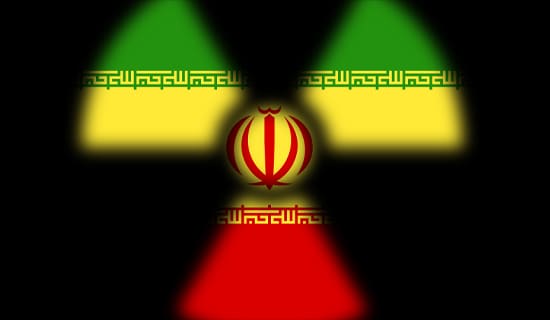At the end of May 2020, Donald Trump proposed the idea of an expanded G7 to which Russia, indefinitely suspended from membership after the annexation of Crimea, would also be invited. South Korea, Australia, and India would also be invited. Trump made it clear that the expanded group would deal with the future of China.[1] Trump said it was "common sense" to invite Russian President Vladimir Putin to rejoin the G7, because it would facilitate the solution of various issues.[2] The plan went nowhere due to domestic opposition within the United States and Russia's coolness to the proposal.
The Moscow-Beijing axis outwardly appears stronger as illustrated in a recent telephone conversation between Vladimir Putin and Xi Jinping. In the conversation, Xi Jinping congratulated Vladimir Putin on the successful national vote on the amendments to the Russian Constitution. The two leaders noted this step's importance for strengthening Russian statehood and the country's stable socio-political development. The presidents expressed firm mutual support in protecting sovereignty, preventing any outside interference in internal affairs and ensuring the supremacy of international law.
Putin and Xi gave a high assessment to the level achieved in the two countries' comprehensive strategic partnership.[3] This collaboration was recently in evidence when Russia backed the Chinese position on arms control.[4]
Gevorg Mizaryan, a research fellow of the Russian Academy of Sciences' U.S. and Canadian Studies Institute explained in Vz.ru[5]why it made little sense for Russia to accept Trump's May overture and the lifting of its suspension from the G7. Payoffs from the relationship with China were definite for Russia; while payoffs from a return to the West were iffy at best.
Mizaryan' article follows below:

Gevorg Mirzayan (Source: Ukraina.ru)
"The very idea of Russia's return to the G7 was proposed by Trump in June. He proposed staging the G-7 summit in the United States in an expanded format and inviting Russia, India, South Korea and Australia (summit was postponed to September due to coronavirus). At the same time, Trump made it clear that he was inviting the four aforementioned countries not just as listeners, but as participators of the summit in format "G10 or G11".
The G7 Is A Relic Of Itself
"The goal [of the summit] was simple - to solve the global and the United States' problem: containing China. Yes, the G7 previously solved global problems, however, in its current format it is incapable. The decline in leadership quality, the divergence of interests, the lack of political will - all this has transformed G7 from the global Board of Directors into a 'gentleman's club' of developed democracies. They discuss world problems, but cannot solve them or even reach agreement among themselves, nor to force others to deal with the problems.
"After last year's summit in Biarritz, the British newspaper Guardian quite accurately described the G7 as 'a relic of a past era'. [It was] an era when the US president was respected; when multilateral diplomacy brought results; when global processes were controlled by globalist politicians and not nationalist demagogues; the era when Western democracies could agree on joint actions and implement these agreements. At the Biarritz summit, participants agreed only on one issue: 'let’s not anger you know who' (as was correctly pointed out by the New York Times).
"By inviting four new countries to the round table, the 'you know who' [Donald Trump] simultaneously solved two problems. Firstly: [Trump wanted] to get partners with whom he can speak in the same language of rationalism (Russia) or those who not despise him for nationalism and right-wing ideas (again Russia, respectful South Korea, India which has the same right-wing nationalist leadership, and Australia, which is unencumbered by a specific ideology in foreign policy). Secondly, he would get four countries that according to Trump, unlike the European ones, who underestimate the degree of threat, genuinely fear Chinese expansion. [These countries would be] ready to participate in an initiative to contain China, or (in the case of Russia) are at least ready to discuss their participation in this project.
"Initially, Moscow was going to take a wait-and-see position that awaited a clarification of the initiative through diplomatic channels. Moscow wanted to know whether it made sense to participate in this august meeting. Yes, participation in it would be a status enhancer - but Russia is not welcomed there. At least two participating countries: the UK and Canada were unambiguously and strongly opposed to Moscow's return.
"Additionally, American public opinion was against [Russia's participation]. Moscow's partners among Third World countries (who had long suspected that Kremlin is ready to abandon the concept of a multipolar world after the first US or European call to return to the Western camp) were also opposed."
Russia Is The Key To Containing China
"Besides, it is clear that they asked Russia to return to the Western camp and hinted that 'all is forgiven' for the sole purpose of participation in China's containment. South Korea, Australia and even India are necessary and useful countries in this system, but it will survive even without them, but not without Russia.
"The Kremlin controls developments in Central Asia (via which Chinese land trade routes pass to Europe and from which China wants to import hydrocarbons, and not Islamic extremists). Russia has a long border with China, through which it can supply China with resources in the event of a sea blockade imposed by the States. That is precisely why America needs Russia - but for what does Russia need this? What will Moscow get from the USA for such a containment, or at least for demonstrating a readiness to participate in such containment (in the form of joining the G11 summit).
"Ukraine? - But we will take it back ourselves eventually. Removal of sanctions? - Today they'll lift the sanctions, but tomorrow they will again impose them. Putin’s acceptance in the best European homes? - Everyone calls him and asks him to solve problems as it is. And why should Moscow give up working relations with China, dive in into direct conflict with Beijing and be deprived itself of opportunities because of the West, whom the Kremlin obviously distrusts?
"Apparently, Washington was unable to answer this question. And while they were thinking there, the situation with Russia's participation became complicated by the promotion of a story in the US that Moscow allegedly paid money to the Taliban for the assassinations of American soldiers in Afghanistan.
"In this story it is "highly likely" that there was more than in the "Skripal case": it is based only on a high-ranking source's" testimony to the New York Times' "the assassination;' rate was slow: during the 2019 about two dozen American soldiers were killed in Afghanistan. Even if we imagine that the GRU paid for all of these killings, the inefficiency is just amazing. The Pentagon and US intelligence did not confirm the New York Times' claims. However, Democratic politicians have already placed the story on the [campaign] billboard, and have started criticizing Trump for "tiptoeing" before the Russian president: even top Republicans are already writing articles with headlines like that: "Why does Trump put Putin's interests first?"
"In this situation, Trump's team (for example, National Security Advisor Robert O'Brien) suggested that the president should somehow withdraw the invitation to Putin. But Trump could not do this (and not only because he would have shown weakness). If he would withdraw the invitation, it would mean that the accusations of Russians financing the assassination of American soldiers by the Taliban are justified. Thus, he would acknowledge the correctness of the New York Times article. The article also claims that Trump knew about the shooting in the spring; he knew, and was silent. Therefore, now the American president calls the article fake and does not even want to hint at the correctness of these claims.
"And then, apparently, an elegant two-step was made. In an interview with the Russian media, the US ambassador to our country, John Sullivan made this small leak: "We along with the Russian Foreign Ministry and the governments of other participating countries are now working on the details and discussing the issue of whether there is an acceptable role for Russia at this summit." By this statement he practically confirmed that Moscow had agreed to consider its participation in this anti-Chinese summit.
It is not surprising that the Foreign Ministry considered these words to be a provocation and stated that they were not working out the details of this summit with anyone, and Moscow would not participate in G7 in this format.
"The so-called expanded seven is flawed as a concept, because it is not clear to us how the authors of this initiative plan to deal with the Chinese factor," - said Deputy Foreign Minister Sergei Ryabkov. And if Moscow officially expresses unwillingness to participate in the summit, then the owner of the White House is off the hook.
"Thus, Moscow officially made a choice: Kremlin is not ready to contain China and even participate in such discussion. There will be no other topics at the G11. As Mr. Ryabkov correctly continued, "without China, it is simply impossible to discuss certain issues in the modern world." But Trump is not offended by the refusal - if Moscow officially expresses unwillingness to participate in the summit, then the owner of the White House is off the hook and he does not need to withdraw any invitation."
Trump Is Isolated
"At the same time, Russia does not discard the option of a multilateral dialogue with the United States. Kremlin offered Trump to return to other constructive options: for example, the summit of the five permanent members of the UN Security Council proposed by Vladimir Putin. However, this option is not very interesting for the American president (and not only because it is difficult to create a collective security system against China in negotiations with the very same China). Trump suspects (and has every reason for it) that the Big Five summit will turn into "Four Against One" summit.








